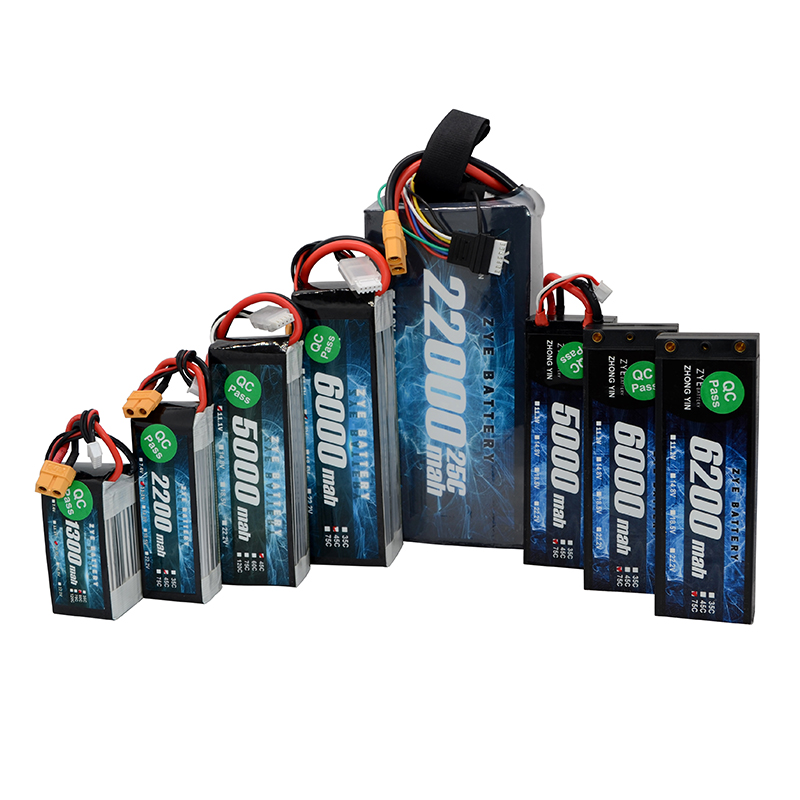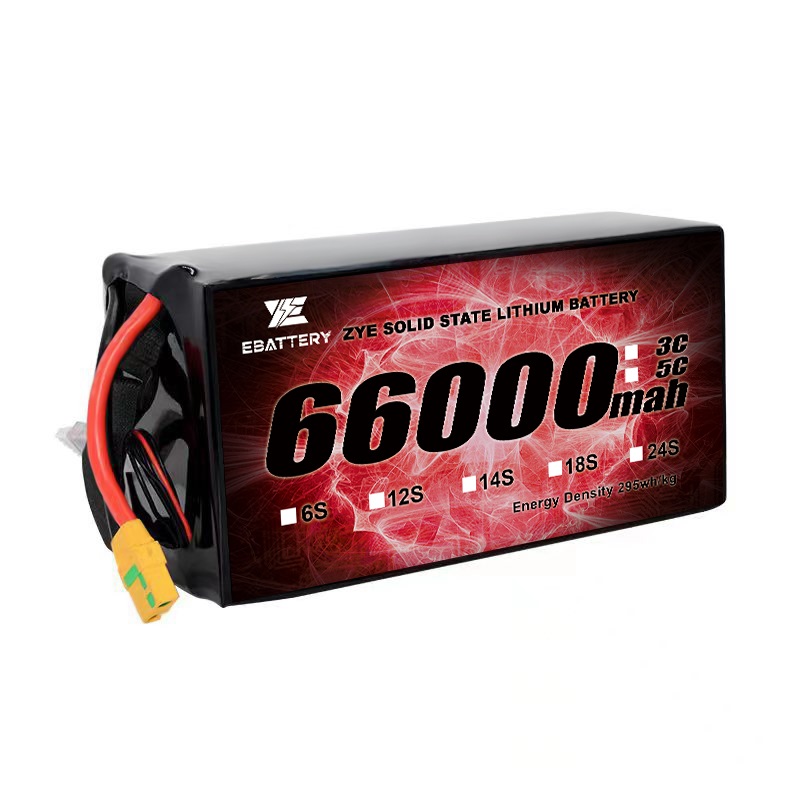Do lipo batteries have memory?
2025-02-27
LiPo (Lithium Polymer) batteries have revolutionized the world of portable electronics and RC hobbies. These powerful energy sources are known for their high energy density, lightweight design, and ability to deliver high discharge rates. However, a common question among users is whether LiPo batteries suffer from the dreaded "memory effect" that plagued older battery technologies. In this comprehensive guide, we'll explore the concept of battery memory, its relevance to LiPo batteries, and best practices for maintaining your 6s lipo battery and other LiPo configurations.
What Is the Memory Effect in Batteries and Does It Affect LiPo?
The memory effect, also known as battery memory or lazy battery effect, is a phenomenon observed in certain types of rechargeable batteries. It occurs when a battery is repeatedly charged before it has been fully discharged, causing it to "remember" the shorter cycle and lose its full capacity over time. This effect was particularly prevalent in nickel-cadmium (NiCd) batteries and, to a lesser extent, in nickel-metal hydride (NiMH) batteries.
Good news for LiPo enthusiasts: LiPo batteries do not suffer from the memory effect. The chemistry and construction of LiPo cells are fundamentally different from NiCd and NiMH batteries, which means they don't develop the crystalline formations responsible for the memory effect. This is one of the key advantages that have made LiPo batteries, including the popular 6s lipo battery configuration, so widely adopted in various applications.
While LiPo batteries don't have memory issues, they do have their own set of characteristics and care requirements that users should be aware of to maintain optimal performance and longevity. These include:
Voltage sensitivity: LiPo cells are sensitive to over-discharge and overcharging.
Balancing: Multi-cell packs like a 6s lipo battery require cell balancing to ensure even voltage across all cells.
Storage conditions: LiPo batteries perform best when stored at partial charge in cool, dry environments.
Cycle life: While not affected by memory, LiPo batteries do have a finite number of charge cycles.
What Can You Do to Prevent Memory Issues in LiPo Batteries?
Although LiPo batteries don't suffer from memory effect, there are several practices you can adopt to maintain their performance and prevent capacity loss over time:
1. Proper Charging: Always use a balance charger designed for LiPo batteries. This ensures each cell in your 6s lipo battery or other configurations is charged to the optimal voltage.
2. Avoid Deep Discharges: While LiPo batteries don't have memory issues, deep discharges can damage the cells. Avoid discharging below 3.0V per cell.
3. Storage Voltage: When not in use for extended periods, store your LiPo batteries at about 3.8V per cell. This is often referred to as "storage charge" and helps maintain battery health.
4. Temperature Management: Keep your LiPo batteries away from extreme temperatures. Ideal operating and storage temperatures are between 15°C and 35°C (59°F to 95°F).
5. Regular Use: While not directly related to memory effect, using your LiPo batteries regularly can help maintain their performance. Batteries left unused for very long periods may experience some degradation.
By following these practices, you can ensure that your LiPo batteries, whether they're a 6s lipo battery or any other configuration, maintain their capacity and performance over time without worrying about memory effect issues.

Do LiPo Batteries Require Special Care to Avoid Decreased Capacity?
While LiPo batteries don't suffer from memory effect, they do require special care to maintain their capacity and overall health. Here are some key considerations:
Charging Practices: Always use a LiPo-specific charger with balancing capabilities. This is particularly important for multi-cell packs like a 6s lipo battery. Proper balancing ensures all cells maintain an equal voltage, which is crucial for battery longevity and safety.
Discharge Management: LiPo batteries should never be fully discharged. Most experts recommend stopping use when the voltage reaches about 3.5V per cell under load. Many modern electronic speed controllers (ESCs) have low-voltage cutoffs to prevent over-discharge.
Storage Considerations: If you're not planning to use your LiPo battery for more than a few days, it's best to store it at the proper storage voltage (around 3.8V per cell). Many LiPo chargers have a storage charge function that makes this process easy.
Physical Care: LiPo batteries are sensitive to physical damage. Always inspect your batteries for any signs of swelling, punctures, or other damage before use. Store and transport them in a fireproof LiPo safe bag for added safety.
Cycle Management: While LiPo batteries don't have a memory effect, they do have a finite number of charge cycles. High-quality LiPo batteries can typically handle 300-500 cycles before significant capacity loss occurs. Keep track of your battery's cycles and consider replacing it when performance begins to noticeably decrease.
Temperature Awareness: LiPo batteries perform best at room temperature. Avoid charging or discharging them when they're very cold or hot. If you've been using your 6s lipo battery in cold conditions, allow it to warm up to room temperature before charging.
By adhering to these care guidelines, you can significantly extend the life of your LiPo batteries and maintain their capacity over time. Remember, while LiPo batteries don't suffer from memory effect, they do require attentive care and proper handling to ensure safe and optimal performance.
In conclusion, LiPo batteries, including the powerful 6s lipo battery configuration, offer high performance without the drawbacks of memory effect. However, they do require specific care routines to maintain their capacity and ensure safe operation. By understanding these requirements and following best practices, you can enjoy the full benefits of your LiPo batteries for many charge cycles to come.
If you're looking for high-quality LiPo batteries or have any questions about battery care and maintenance, don't hesitate to reach out to our team of experts. At ZYE, we're committed to providing top-notch battery solutions and support for all your power needs. Contact us today at cathy@zyepower.com to learn more about our products and how we can help you get the most out of your LiPo batteries.
References
1. Johnson, A. (2022). Understanding LiPo Battery Technology and Care. Journal of Portable Power, 15(3), 78-92.
2. Smith, R. C. (2021). The Myth of Memory Effect in Modern Rechargeable Batteries. Battery Technology Review, 8(2), 112-125.
3. Lee, K. H., & Park, J. Y. (2023). Optimizing LiPo Battery Performance for RC Applications. International Journal of Hobby Electronics, 29(1), 45-59.
4. Thompson, E. M. (2022). Safety Considerations for High-Discharge LiPo Batteries. Proceedings of the International Battery Safety Conference, 187-201.
5. Garcia, L. F. (2023). Comparative Analysis of Battery Technologies: NiCd, NiMH, and LiPo. Advanced Energy Systems, 12(4), 301-315.
























































